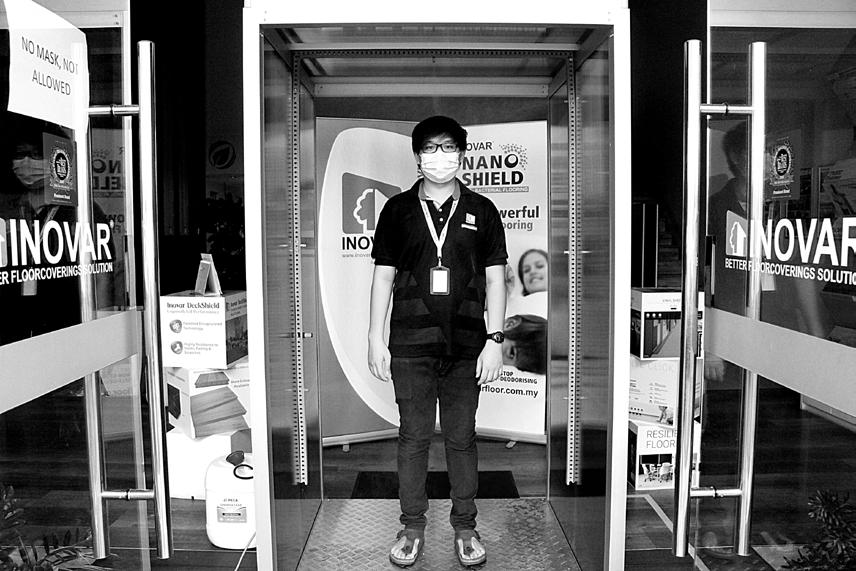Feature
34
Business Survival after the Pandemic The Star Outstanding Business Awards (SOBA) held a live Facebook panel session on April 13 with guests from MRCA, Malaysian Associated Indian Chambers of Commerce and Industry and SME Association of Malaysia, for their views on business survival after the Covid-19 pandemic. SPEAKERS • Datuk Seri Garry Chua, MRCA President • Datuk Michael Kang Hua Keong, National President, SME Association of Malaysia • Datuk Dr AT Kumararajah, Malaysian Associated Indian Chambers of Commerce and Industry MODERATOR • Dato’ Bruce Lim, Deputy Secretary General, MRCA
ENGAGING POLICY MAKERS Since the start of the MCO in mid-March, many associations have been engaging with the government to make the plights and woes of all SMEs, retailers, and businesses heard. With almost no income, businesses are paying overheads such as salaries, rentals, and bank loans, among others. Datuk Seri Garry believes that it is necessary to work together with the government, employers and employees in sharing the burden. Financial institutions, suppliers, statutory contribution bodies and landlords, need to work together to support SMEs and ensure business survival, he stated. “The “mid-to-higher tier” SMEs require further attention by the government because many of them are chain retailers, employing hundreds of employees. They also need to discuss with their respective banks to restructure their loans. He also stated that employers should establish goodwill with their employees by ensuring two-way communication. Picking up on that point, Datuk Michael said that an option was to offer senior employees some shares in the company or let them become a partner in the company in lieu of a full salary. He pointed out that SMEs generally find it hard to claim and get assistance from the government to overcome their loss of income, and it falls on associations like theirs to request help from various ministries. Datuk Kumararajah said the Government’s RM250 billion “Mak Cik
Malaysia Retailer Vol 8 No 2
Kiah” stimulus package, among other measures, achieved a “higher level of coverage” by “managing the demand side”, while acknowledging that Putrajaya might have overestimated the ability of SMEs as a “relatively resilient” group. He suggested that the Government have a “single window of implementation” in place for its SME crisis. Datuk Michael recommended that the government emulate the practices of the UK, and make transparent the financial assistance situation surrounding acceptance and rejection rates.
WINNING THE HEARTS OF RETAILERS On how businesses should behave, Datuk Kumararajah called for a “transparent” approach that focused on negotiations. Connecting to Datuk Kumararajah points, Datuk Seri Garry cited the example of Sunway Malls and their 2-week rent-free period having a rippling influence across other malls in the industry – each following suit with a rent-free or rent-reduction programme that benefits the long-term relationship with its tenants. He added that the 15% discount from Tenaga Nasional could have been as high as 30-50%, so as to help malls “cushion part of their expenses”. On the Special Relief Fund, Datuk Kumararajah said that it covered only a small percentage of the SMEs in the country. “It was never a medium-term
solution, instead it was intended to merely cover liquidity needs in April.” He said that immediate drawdown was necessary to ensure that the purpose of the SRF was not defeated at the waiting line. Observing that consumers are taking their shopping online, Datuk Michael opined that the RM500 million business digitalisation grant from the government was a timely opportunity for SMEs to retool, but recommended that a revision in the number of beneficiaries so that more SMEs could make the change. According to Datuk Seri Garry, consumers are increasingly skewed towards takeaways and deliveries. Grab and Foodpanda have seen delivery volumes pick-up by a factor of 10 “compared to normal days”, even though many restaurants did not score very well throughout this period.
DIGITAL PATH As for business opportunities, Datuk Michael pointed out that SMEs should consider going on a digital path by leveraging existing governmental assistance. “With changes in customer behaviour, the business model has to change as well,” he said. He also stated that the government should work together with businesses to build up a sustainable and selfsufficient ecosystem within the country, instead of relying mainly on imports. Datuk Kumararajah pointed out that SMEs realise that technology is accessible and affordable, but it’s the back end that does not match in terms of the processes. “Our processes were not aligned to work from home,” he said. However, he expressed confidence that industries would take a permanent step forward through reimagined business models in this medium-term isolation economy. New legislation and regulation must be enacted to complement and compensate the “new level of business”, he added.












